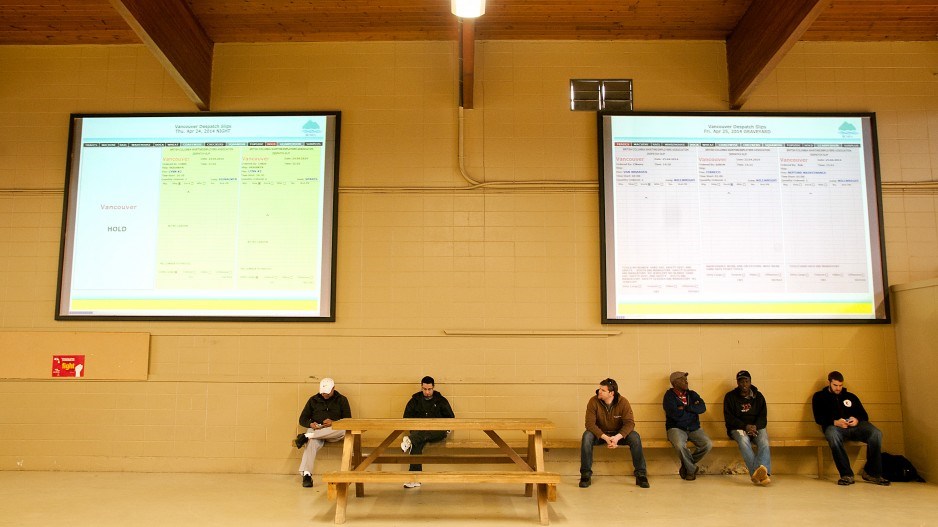Employer and union representatives involved in critically important negotiations for a new long-term contract to secure labour peace on B.C.’s waterfront are done with the federal government’s conciliation process.
As of May 31, negotiations between the BC Maritime Employers Association (BCMEA) and the International Longshore & Warehouse Union Canada (ILWU) have entered a 21-day cooling off period.
The federal government appointed two senior Federal Mediation and Conciliation Service (FMCS) to the file almost immediately after the ILWU filed a notice of dispute following only a handful of preliminary contract discussions with the BCMEA.
Considering that the current collective agreements for the 7,400 unionized dockworkers and foremen employed at Canada’s West Coast ports took 18 months to negotiate, the union’s decisions to file a notice of dispute so quickly was unusual.
The current five-year contract between the BCMEA and ILWU expired on March 31.
The conciliation process, which consisted of a series of bargaining sessions, began on March 28.
During the cooling off period, which ends on June 21, both sides in the contract negotiations acquire the right to strike or lockout. However, those rights cannot be exercised until the 21 days have passed, a strike or lockout vote has been taken and a 72-hour strike or lockout notice has been issued. A series of bargaining sessions have been scheduled between the two sides throughout June.
Both parties have agreed that no 72-hour strike or lockout notice will be filed before June 21, so, the earliest either side could exercise their right to strike or lockout would be on June 24.
Any additional disruption caused by a labour dispute in a supply chain that has suffered from historic bottlenecks over the past three years would seriously damage business prospects for Canada’s Asia-Pacific Gateway now and well into the future. And that would have major implications for a B.C. economy that already faces significant challenges in 2023.
“We know stability at our West Coast ports is paramount to Canada’s economic and social well-being,” the BCMEA stated in an update on the contract negotiations.
Asked to comment on the status of negotiations for a new contract when the union initially filed its notice of dispute, ILWU Canada president Rob Ashton would say only that “we are entering FMCS with the BCMEA, and we are hopeful for a good collective agreement for our members.”
Meanwhile, the BCMEA met with ILWU Local 514 on May 26 to start negotiations with the bargaining unit that represents the province’s ship and dock foremen.
Both the BCMEA and ILWU Canada have declined to comment on the current state of contract negotiations.




